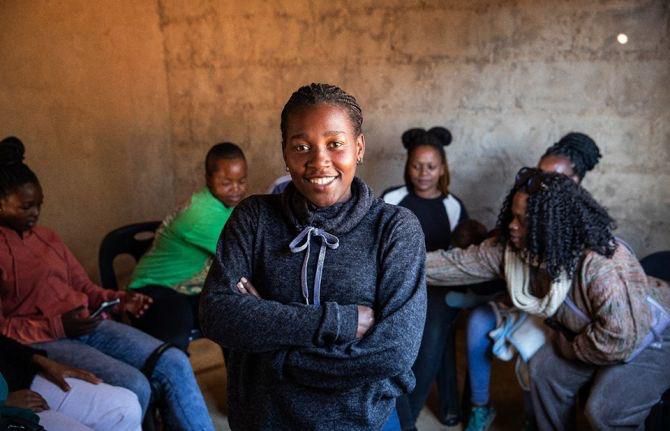A Future in Peril: Eswatini’s Youth Face Rising HIV Risk as US Aid Cuts Bite
Written by Maxine Ansah
MBABANE, Eswatini – When Noncedo Khumalo reflects on her life, she thinks of long walks to school, the struggle to afford higher education, and the silent pain endured by many of her peers, some of whom contracted HIV through relationships rooted in economic desperation. The 24-year-old social worker and community advocate is now facing a different kind of uncertainty: unemployment and the loss of vital HIV prevention programmes following the abrupt withdrawal of United States funding to Eswatini.
“After finishing high school, it becomes so hard for us to afford university,” she said. “So many girls take a short cut. That’s how many of my friends got HIV.”
Khumalo, like many young women in Eswatini, grew up in a country with one of the highest HIV prevalence rates in the world. Although the nation has made significant strides in reducing new infections, young women and adolescent girls remain disproportionately affected. According to Dr Nondumiso Ncube, Executive Director of Eswatini’s National Emergency Response Council on HIV/AIDS (NERCHA), adolescent girls and young women are three to five times more likely to contract HIV than their male peers.
The situation has been exacerbated by the United States government’s decision earlier this year to cut all funding to HIV programmes in Eswatini through the President’s Emergency Plan for AIDS Relief (PEPFAR). The funding halt led to the suspension of operations at Young Heroes, a community-based organisation where Khumalo provided peer education on HIV prevention and sexual and reproductive health. Now without a job, she fears for the wellbeing of those she once supported.
“I am scared for the future of young people,” she said. “Without these HIV programmes, who will protect them?”
For years, PEPFAR played a central role in Eswatini’s HIV response, covering nearly 60 percent of the national programme and supporting prevention services that reached thousands of young people. Khumalo’s work with Young Heroes involved visiting schools and communities, providing counselling, and correcting harmful myths around HIV transmission, many of which persist in rural and underserved areas.
“Some people believe HIV is a curse,” Khumalo explained. “Condom use is low. There’s so much misinformation.”
Nosipho Sacolo, a young woman living near Mbabane, echoed these concerns. “After managing to stay free from HIV for so many years, we no longer have the services to protect us,” she said.
Nuha Ceesay, UNAIDS Country Director for Eswatini, has warned that the defunding could reverse hard-won gains. “Eswatini has made huge progress in preventing new HIV infections, with new infections falling by 73 percent since 2010,” he said. “But we are not out of the woods yet.”
Despite the progress, more than 1,300 adolescent girls and young women in Eswatini still acquire HIV each year. The country also has a significant gender disparity, with nearly twice as many women living with HIV compared to men.
The Coordinating Assembly of Non-Governmental Organisations (CANGO), a network of local NGOs, says the halt in funding will have dire consequences. “Eighty-five thousand people were benefiting from the support,” said Thembinkosi Dlamini, CANGO’s Executive Director. “All the people who were working in the sector, who were supporting our people living with HIV, are now sitting at home.”
The situation is particularly alarming when it comes to treatment. With PEPFAR’s support, Eswatini had ensured that 93 percent of people living with HIV were on lifesaving antiretroviral therapy. According to Khanyakwezwe Mabuza, Principal Secretary in the Ministry of Health, this level of treatment coverage must not be disrupted.
“Treatment is not something you can skip,” Mabuza said. “We have to make sure that people continue to get their life-saving treatment.”
For Khumalo, the loss of income is secondary to the loss of purpose. She remains hopeful that the government and other international partners will step in to preserve the peer-led programmes that once made a difference.
“We were changing lives,” she said. “Now I feel like we’re going backwards.”
As the country navigates this funding crisis, one question continues to echo through the voices of its young people: who will protect them?








